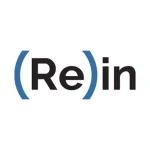(Re)in Summary
• Sierra Signorelli, Chief Executive of Commercial at Zurich, told Bloomberg the group will stop underwriting new oil and gas projects.
• Signorelli cited alignment with the company’s 2050 net-zero emissions goal as the reason.
• Insurer will continue underwriting existing policies, but will engage with corporates with highest insurance-associated emissions to encourage investments towards net-zero goals.
• Clients failing to make progress may face termination of their policies as a last resort.
• Zurich intends to increase coverage of clean-energy infrastructure, including carbon capture and hydrogen power.
Zurich Insurance Group will cease underwriting new oil and gas projects, adopting a stricter approach to clients looking to expand in metallurgical coal mining, and ask highest-emitting corporates to reduce their carbon footprint, Bloomberg reports.
Sierra Signorelli, Chief Executive of Commercial Insurance at Zurich, explained the rationale behind the decision, telling Bloomberg there was a disconnect between insurer such activities and the company’s 2050 net-zero emissions goal.
“Further exploration and development of fossil fuels isn’t required for the transition. We think it’s the right time to evolve our position,” she said.
This strategy change marks a significant shift for Zurich, which has previously insured a wide range of fossil-fuel infrastructure. The company generated approximately US$2.1bn in premiums from such clients last year, accounting for 7% of its total commercial premiums, Bloomberg said.
The insurer has faced scrutiny for its fossil-fuel policies in the past and ranked seventh in a 2023 scorecard published by the Insure Our Future campaign, down from fourth in 2020.
Despite the changes, Zurich said it would continue to underwrite existing fossil-fuel projects and does not anticipate a substantial impact on its financial performance.
However, the company intends to engage with 65 corporate clients this year, identified as having the highest insurance-associated emissions, expanding this initiative to 450 of its largest customers by 2030, Bloomberg said.
Signorelli said the expectation for these clients is to make meaningful investments towards net zero goals, not just present plans. She indicated that if real progress is not evident, Zurich would consider exiting customers as a path of last resort, underlining the insurer’s commitment to its climate transition strategy.
In addition to tightening restrictions on fossil-fuel clients, Zurich plans to increase its coverage of clean-energy infrastructure, such as carbon capture and hydrogen power, acknowledging the risks involved in this expansion.
The insurer is set to release further details on its climate transition plan later this year.
Zurich’s move comes amid the insurance industry’s ongoing struggle to address climate change effectively. The company withdrew from the Net Zero Insurance Alliance last year, with CEO Mario Greco later emphasising the importance of companies standing by their convictions rather than relying on alliances.
















